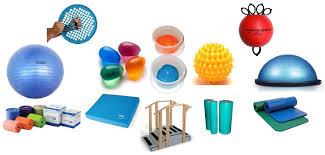Physiotherapy is an integral part of healthcare in Nigeria, especially for individuals recovering from injuries, surgeries, or managing chronic conditions such as arthritis, stroke, or musculoskeletal disorders. The increasing awareness of physical rehabilitation and the growth of physiotherapy clinics across the country have created a demand for specialized physiotherapy equipment. In this article, we will explore the importance of physiotherapy equipment in Nigeria, the types of tools used, and how this growing industry is contributing to healthcare.
The Role of Physiotherapy in Nigeria
Physiotherapy helps people recover from a wide range of physical impairments by restoring movement, improving strength, and relieving pain. In Nigeria, physiotherapy services are essential in hospitals, private clinics, and rehabilitation centers to help patients regain functionality after accidents, surgery, or the onset of chronic conditions. Physiotherapists use various forms of treatment, including exercises, manual therapy, and the use of specialized equipment to accelerate recovery.
As the demand for physiotherapy services grows in Nigeria, so does the need for reliable and advanced physiotherapy equipment. This equipment plays a crucial role in improving patient outcomes and making therapy more effective.
Types of Physiotherapy Equipment in Nigeria
-
Exercise and Rehabilitation Equipment
One of the most commonly used categories of physiotherapy equipment in Nigeria includes exercise and rehabilitation tools designed to strengthen muscles, improve flexibility, and restore joint mobility. Some of the key equipment in this category includes:
- Resistance Bands and TheraBands: These elastic bands are used for resistance training exercises, helping to improve strength in specific muscle groups.
- Exercise Balls: These are commonly used for core stability exercises, balance training, and physical rehabilitation after injury.
- Treadmills and Stationary Bikes: These are used for cardiovascular training, helping patients regain their fitness levels while undergoing rehabilitation.
-
Electrotherapy Devices
Electrotherapy is a popular treatment method in Nigerian physiotherapy clinics for pain management and muscle stimulation. Some of the essential electrotherapy devices include:
- TENS (Transcutaneous Electrical Nerve Stimulation) Machines: These devices send electrical impulses to nerve endings, helping reduce pain by blocking pain signals.
- Ultrasound Therapy Machines: These use sound waves to treat deep tissue injuries and reduce inflammation, promoting faster healing.
- Interferential Therapy Machines: These electrical devices use low-frequency currents to reduce muscle pain and stiffness, often used in the treatment of chronic conditions like arthritis.
-
Heat and Cold Therapy Tools
Heat and cold therapy play a significant role in physiotherapy, helping to reduce inflammation, relieve muscle tension, and manage pain.
- Heat Pads and Hot Water Bottles: These are commonly used for treating conditions such as muscle stiffness and joint pain, helping improve blood circulation and relax tight muscles.
- Cold Packs and Ice Therapy: Cold therapy is especially beneficial for reducing swelling and inflammation in acute injuries, such as sprains and strains.
-
Mobility Aids
Mobility aids are essential for patients recovering from surgeries, fractures, or neurological disorders that affect movement. Some of the key mobility aids used in Nigeria include:
- Walkers and Crutches: These provide support and stability for patients as they regain their ability to walk after an injury or surgery.
- Wheelchairs: For individuals with limited mobility, wheelchairs offer a way to maintain independence while undergoing physiotherapy treatment.
-
Traction Devices
Traction is used to treat back and neck pain by gently stretching the spine and relieving pressure on the spinal discs. In Nigerian physiotherapy clinics, cervical and lumbar traction devices are often used to help patients with spinal conditions such as herniated discs or sciatica.
The Availability of Physiotherapy Equipment in Nigeria
While physiotherapy is gaining popularity in Nigeria, access to high-quality physiotherapy equipment can still be a challenge, particularly in rural areas. Many hospitals and clinics in major cities like Lagos, Abuja, and Port Harcourt have started incorporating advanced physiotherapy equipment into their treatment plans. However, the availability of such equipment in smaller towns and villages is still limited.
Several local suppliers and distributors in Nigeria now offer a range of physiotherapy equipment, ensuring that clinics and healthcare providers have access to the tools they need for effective treatment. Additionally, the increasing use of online platforms has made it easier for healthcare providers to source physiotherapy equipment from local and international manufacturers.
Conclusion
Physiotherapy equipment plays a vital role in the recovery and rehabilitation process for many patients in Nigeria. Whether it's exercise tools, electrotherapy devices, or mobility aids, having access to the right equipment can significantly enhance the effectiveness of physiotherapy treatments. As the demand for physiotherapy services continues to grow in Nigeria, ensuring access to high-quality equipment will be essential in improving healthcare outcomes across the country.
